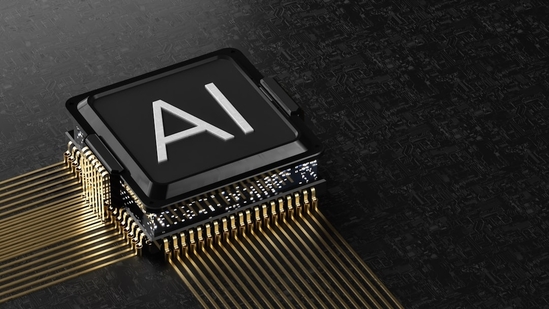AI in workforce management
This article is authored by RK Rangan, chairman and president, Aptia Group India.
Artificial Intelligence (AI) is transforming workforce management, revolutionising business operations and employee engagement. By leveraging predictive analytics, natural language processing, and machine learning, organisations can optimise decision-making and personalise employee experiences. These advancements enhance productivity, foster collaboration, and create a more agile, future-ready workforce.

AI optimises decision-making, increases efficiency, and enhances employee satisfaction. Studies show that AI can boost productivity by up to 40% in certain sectors. In India, Global Capability Centres (GCCs) are leveraging AI-driven insights for smarter resource planning, workforce agility, and streamlined global operations.
AI improves workforce productivity through capacity planning, automation, and hiring optimisation. Predictive analytics ensures efficient staffing, reducing downtime. AI-driven automation cuts routine work by up to 60%, allowing employees to focus on strategic tasks. AI-powered hiring tools, like chatbots, accelerate recruitment, improving efficiency and candidate engagement in companies like Wipro.
AI and machine learning create personalised learning experiences, adapting to individual skills and career growth needs. AI-powered training solutions improve employee retention and job satisfaction. Beyond learning, AI fosters a healthier work environment through real-time feedback, sentiment analysis, and fair shift allocations, enhancing work-life balance and morale.
AI also strengthens teamwork by analysing work patterns and connecting employees based on skills and expertise, promoting knowledge sharing and collaboration. Businesses integrating AI into workforce management will foster more engaged, motivated, and high-performing teams.
Some barriers to AI integration are as follows:
· Bridging skill gaps: Organisations invest in AI-driven upskilling programmes, ensuring a highly adaptable, tech-savvy workforce.
· Accepting change: Continuous learning and reskilling initiatives help employees embrace AI’s potential in streamlining tasks and fostering innovation.
· Data security: Companies enhance compliance and safeguard employee information through advanced protection measures and ethical AI practices.
· Mitigating bias and data misuse: AI policies and guidelines help prevent bias and ensure ethical implementation.
· Infrastructure challenges: Many GCCs require significant investment in system upgrades to seamlessly integrate AI solutions.
India’s IT-enabled services (ITeS) sector, particularly GCCs, is undergoing a transformation through automation, predictive analytics, and AI-driven recruitment. These innovations enhance efficiency while boosting employee engagement with personalised learning and real-time feedback. To fully harness AI’s benefits, businesses must address skill shortages, change resistance, and data security concerns. As India strengthens its position as a global GCC hub, embracing AI will be key to fostering innovation, accelerating growth, and building a more agile, future-ready workforce.
This article is authored by RK Rangan, chairman and president, Aptia Group India.
All Access.
One Subscription.
Get 360° coverage—from daily headlines
to 100 year archives.



HT App & Website







